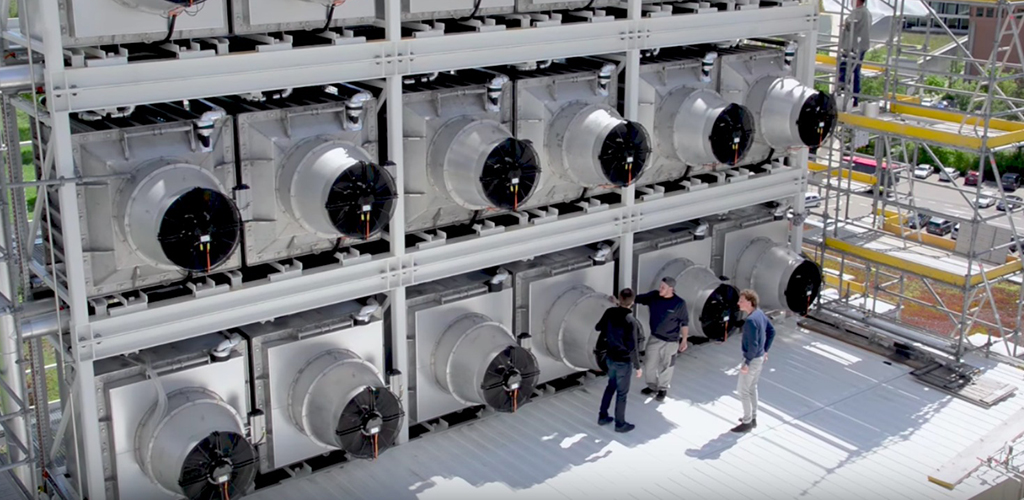Feb 01 | 2021
Pipelaying, compressor station and sea platform will start this year

Porthos, the project for CO2 capture and storage in Rotterdam, is on schedule to store an annual amount of 2.5 million tonnes of CO2 from the industry in empty gas fields beneath the North Sea starting in 2024. Porthos stands for Port of Rotterdam CO₂ Transport Hub and Offshore Storage.
By the end of last year, four companies—Air Liquide, Air Products, ExxonMobil and Shell — registered for a total of €2 billion from the SDE++ scheme for the next 15 years.
It is expected that the subsidy will be granted to the four next spring. According to expectations, the permit procedures will be completed by late 2021. The companies will use 2021 to prepare for the construction of the capture plants.
This year, the Porthos project organisation (EBN, Gasunie, Port of Rotterdam Authority) will be working on the technical preparations of laying pipes on land and on the sea bed, building the compressor station, and adjusting the platform at sea. The final investment decision for Porthos has been planned for 2022, after which the project can proceed.
Major developments last year included submission of the Environmental Impact Assessment (EIA) and several permit applications, making arrangements between Porthos and the four companies that want to use the Porthos system, and the EU promise to contribute €102 million to the project.
Between 2008 and 2019, a total of approximately €4.5 billion in SDE funds was paid to many projects in the Netherlands. Because of these projects about 42 million tonnes of CO2 less has ended up in the atmosphere. With less than half the sum, the Porthos project will realise an almost equally big reduction: some 37 million tonnes of CO2 in a 15-year period.
It is clear that CCS is the best way forward to make huge progress fast and relatively cheaply in meeting the climate targets. It is set out in the Dutch Climate Agreement that half of the industry’s CO2 reduction in 2030 will be achieved by CSS. As to the other half, the industry concentrates on efficiency, electrification, solar and wind farms, and green hydrogen.
For many industry processes, however, there are not enough ways to reduce CO2 emissions drastically in the short term.
More About Porthos
Porthos is a joint venture between the Port of Rotterdam Authority, Gasunie and EBN. These state shareholdings play an important role in the Dutch energy landscape. They aim to contribute to reducing CO₂ emissions in the Netherlands as well as play an active role in the energy transition.
Each of the organisations brings its own experience and expertise to this CCUS project: the Port of Rotterdam Authority will be focusing on the local situation and market, Gasunie can offer extensive experience with gas infrastructure and transport, and EBN will be sharing its expertise in the area of deeper soil layers and offshore infrastructure.
Subscribe to BreakbulkONE and receive more industry stories and updates around impact of COVID-19.
